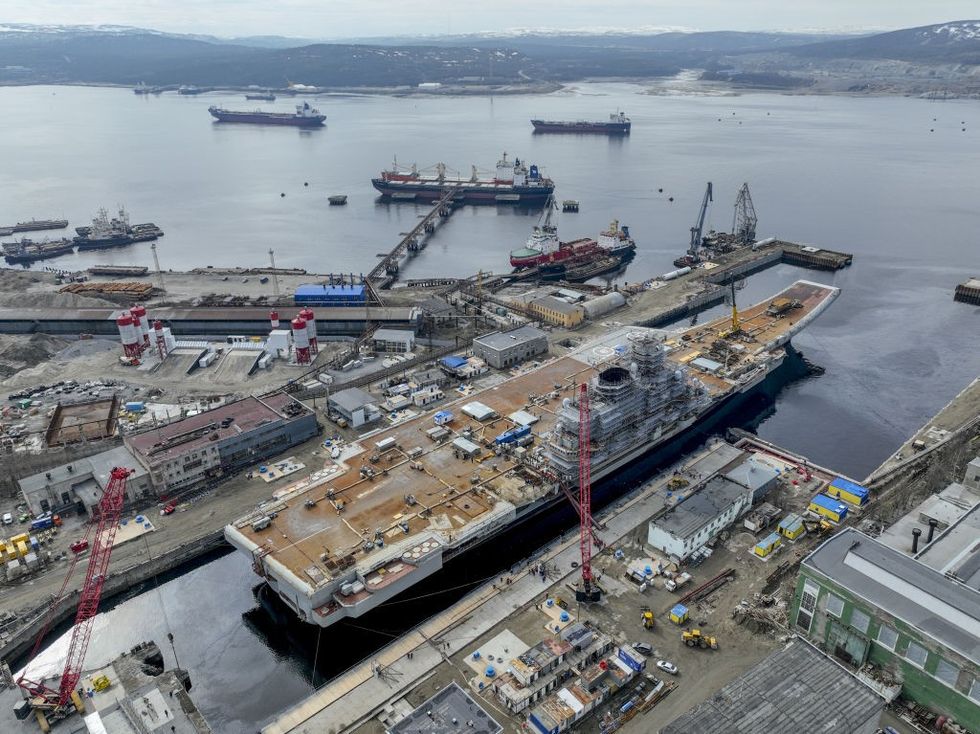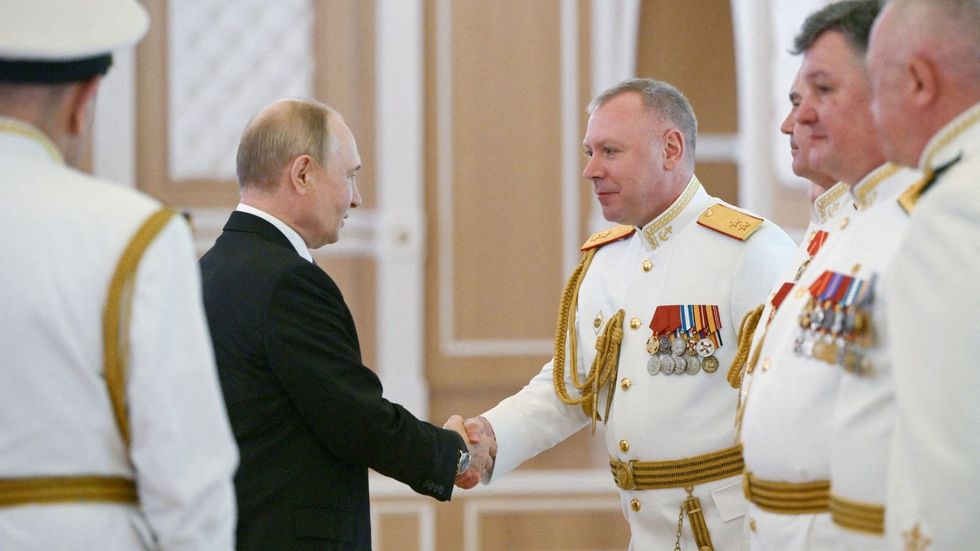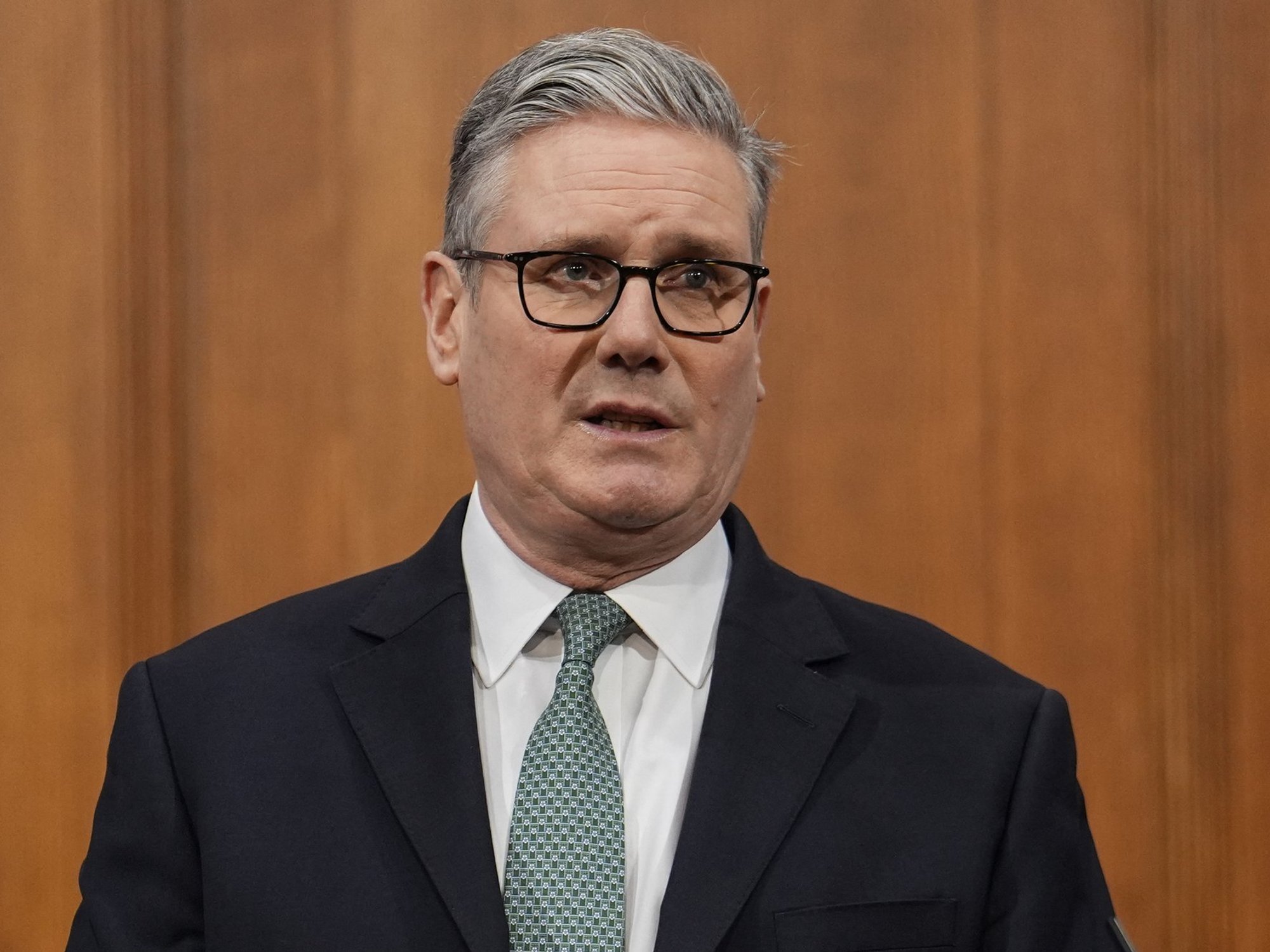Vladimir Putin forced to scrap his final aircraft carrier in latest military humiliation
The vessel was labelled a 'ship of shame' by the UK's Defence Secretary in 2017
Don't Miss
Most Read
Trending on GB News
Russia's last aircraft carrier could be scrapped as Moscow considers permanently decommissioning it after years of troubled repairs.
Authorities have suspended refurbishment work on the Admiral Kuznetsov whilst deliberating whether to invest additional funds or send the warship for scrap, according to the Russian newspaper Izvestia.
The potential scrapping of the carrier, which has been docked at the Arctic port of Murmansk since 2017 deployment, is the latest in a series of blows to Vladimir Putin's naval ambitions.
The vessel's troubled history includes a 2017 incident in which it passed the Kent coastline while belching out thick black smoke, prompting then-Defence Secretary Michael Fallon to label it a "ship of shame".
The carrier had also previously leaked approximately 1,000 tonnes of oil near Ireland's southern coast on a refuelling operation in 2009.
During its sole combat deployment in the Syrian conflict between 2016 and 2017, mechanical issues forced the carrier to be accompanied by tugboats at all times.
Two Russian military aircraft, a MiG-29K and Su-33, plunged into the ocean whilst trying to land - though both pilots survived.
Subsequent repair efforts proved deadly, with at least two workers killed and roughly twelve injured in separate incidents during 2018 and 2019.

Russia's sole aircraft carrier faces an uncertain future as Moscow considers permanently decommissioning the vessel following years of troubled repairs
|GETTY
The refurbishment programme has faced repeated delays and corruption allegations, with expenses ballooning to a minimum of 60 billion Rubles (£556million).
Defence officials are now set to conclude the funds would serve better purposes supporting Russia's Ukrainian invasion.
Moscow has also been forced to contend with its Soviet-era tech being exhausted on Ukrainian battlefields, forcing Russia to depend on Chinese and even North Korean military supplies.
Admiral Sergei Avakyants, who previously commanded Russia's Pacific Fleet, said however: "The Russian navy does not need aircraft carriers in the classic form."
LATEST ON RUSSIA:

The cash spent on the Admiral Kuznetsov would serve better purposes supporting Russia's Ukrainian invasion, according to Moscow's strategists
|REUTERS
He characterised the carrier as "a huge, expensive structure that can be destroyed in a few minutes with modern weapons," suggesting drones and robotics would be the future of naval warfare.
In Britain, the Ministry of Defence looks to be thinking the same - with millions spent on the "Dragonfire" laser weapon in a bid to protect the Royal Navy against drones.
Decommissioning the Kuznetsov without a replacement would make Russia the sole permanent UN Security Council member lacking an operational aircraft carrier.
Whilst some Russian naval experts advocate scrapping the vessel and constructing a new one, such a project would require at least £2billion.
Ilya Kramnik from Russia's Institute of World Economy and International Relations argued: "A modern navy is impossible without air support. Ships need their own airfield, especially when operating far from the shore."
Meanwhile, Russia's competitors continue investing in carrier capabilities, with China and America producing new carrier vessels.
France plans to replace its nuclear-powered Charles de Gaulle, potentially costing up to €8billion, whilst Britain has recently commissioned two new carriers - despite a host of their own operational challenges.
The development comes following a series of humiliating sinkings off the coast of Ukraine.
In 2022, shortly after Putin's invasion, Ukrainian forces sunk the Moskva - a significant scalp in the opening months of the war.
While early last year, the £51million-valued Sergey Kotov was struck by several of Ukraine’s Magura V5 naval drones in the Black Sea.
More From GB News











